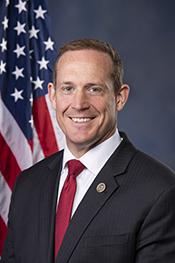0
Solving the Border Crisis Act
12/15/2023, 4:06 PM
Congressional Summary of S 716
Solving the Border Crisis Act
This bill addresses immigration and border security issues, including by restarting construction of a border wall.
The Department of Homeland Security (DHS) must resume all activities related to the construction of a border wall system along the U.S.-Mexico border that were planned or underway prior to January 20, 2021.
Furthermore, this bill imposes limits on terminating the entry suspension policy known as Title 42. (Generally, Title 42 authorizes DHS to suspend the entry of certain non-U.S. nationals or imports on public health grounds. During the COVID-19 public health emergency, DHS used Title 42 to expel certain undocumented migrants without an opportunity to seek asylum.)
Under this bill, the COVID-19 Title 42 policy may not be terminated until at least 120 days after the Surgeon General notifies Congress that the COVID-19 emergency declaration has been terminated.
The bill also nullifies an interim final rule that authorizes asylum officers to determine whether non-U.S. nationals encountered at the border have a credible fear of persecution for asylum purposes.
Furthermore, for an individual arriving by land from a neighboring country and not clearly admissible into the United States, DHS may send that individual to a safe third country.
DHS must ensure certain staffing levels for various agencies involved with immigration enforcement, including the U.S. Border Patrol.
The bill also (1) authorizes DHS to use certain mandatory fees for expenses related to detaining non-U.S. nationals, and (2) requires DHS to ensure that there is enough detention capacity to comply with mandatory detention requirements.





